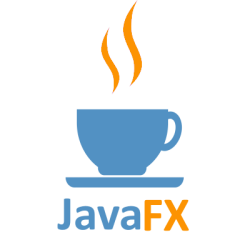Testing JavaFX applications with QF-Test has been supported since the launch of JavaFX.
- QF-Test supports all simple and complex JavaFX controls.
- QF-Test can test hybrid JavaFX applications with an embedded browser like WebView or JxBrowser. You can access both, the Java and the Web part of the application conveniently.
- With Webswing and JPro you can bring JavaFX applications into the web as SAS. Existing tests can be reused as is.
- QF-Test supports JavaFX specifically WebView, JxBrowser, Webswing and JPro cross-platform on Windows, Linux and macOS.
- QF-Test itself is based on Java and therefore offers the best possible support for your JavaFX applications.
QF-Test can directly address and validate sub-items of complex components, such as addressing a table cell via its row and column information. These steps can be conveniently recorded and modularized, allowing easy reuse and leading to low-maintenance tests.
JavaFX is often combined with other Java GUI technologies, e.g. Swing or SWT and of course web. Thus it is particularly important that QF‑Test is ready for use when migrating from Swing or SWT to JavaFX. This allows automated Java Swing or SWT tests created with QF‑Test to be reused for JavaFX with little effort, even combined for embedded components. If parts of the JavaFX application are implemented in an embedded browser like WebView or JxBrowser, QF-Test fully supports that as well.
The following scripting languages offer full access to the JavaFX application under test:
- Jython
- Groovy
- JavaScript
JavaFX future
JavaFX was released as an essential part of Java 8 and Oracle's main intention was a unified solution comprised of an API for UI components, HTML/CSS and JavaScript with embedded browsers like JxBrowser and WebView and media like animations, video, audio as well as 2D and 3D. With Java 11 JavaFX was moved out of the JDK into the open source project OpenJFX. To this day OpenJFX is led by Oracle together with Gluon and supported by many other active participants.
Oracle announced at the JavaFX Adopters Meeting 2020 to extend support for their proprietary JavaFX 8 until 2025. Builds of the open-source variant OpenJFX and longstanding support contracts for that are offered by Gluon.
The Java SE Support Roadmap applies to JavaFX technology, taking into account "Web Deployment Technology and JavaFX" for earlier versions. Current JavaFX releases can be found at jdk.java.net/javafx22, as well as the JavaFX 23 early access builds.
Blog about JFX Adopters Meeting, March 2024
Article 2021: JavaFX on desktop and mobile devices
Our impressions of the JavaFX Adopters Meeting 2021
Articles about QF-Test for JavaFX
- Wolfgang Weigend: Automated testing of JavaFX GUI components
- Centris AG Migration of adcubum SYRIUS from Java Swing to JavaFX at Centris AG
- Kay Grebenstein: The right test tool for JavaFX - The agony of choice (German PDF only)
- jaxenter 20 examples of real-world JavaFX applications (German)

